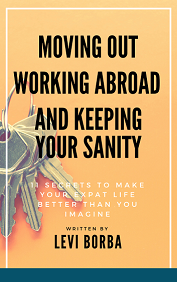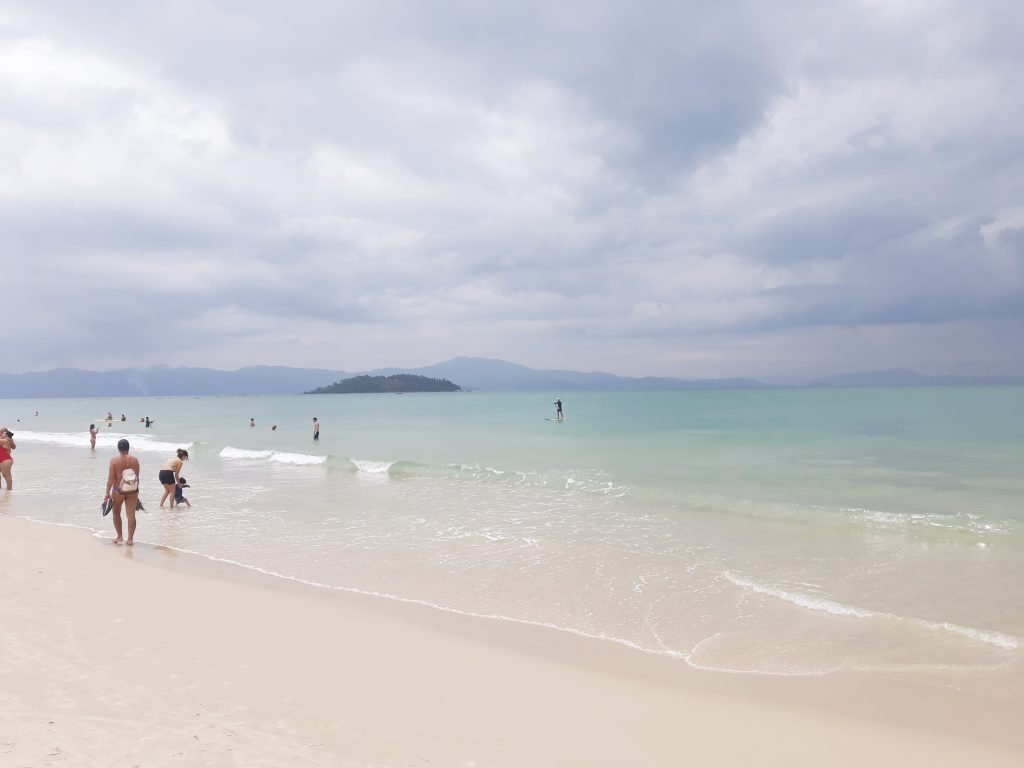There are some shocking data about the countries with the worst work-life balance.
When I was still working in the financial area, it was not uncommon to work 13, sometimes 14 hours per day. Since most of our income was variable, staying at the office for long hours was standard practice for young, ambitious college graduates willing to build their bank accounts.
Unfortunately, it became common for many of my coworkers to lose their hair, gain weight, and get sick with things like high blood pressure and diabetes. I won’t even talk about the constant bad mood of an overworked professional.
Working long hours for a short period is probably doable and has only minor health impacts. But in the long term, the effects may be sinister (unless you really enjoy your job).
Recently, I came across the OECD ranking of work-life balance, involving dozens of countries all over the world.
As someone who has worked on four continents and visited over 50 countries, I couldn’t agree more with the results.
Some of the countries mentioned are pretty obvious (as you may guess, South Korea is among them), but others are quite surprising.
Before we get into the ranking, let’s go over the context and the criteria that were used.
Ps: check also our Youtube channel The Expat.
What is the OECD
The Organization for Economic Cooperation and Development (OECD) is a group of 38 countries, mostly western, that work together to improve their economies. People often call it a think tank group (and is also a very well-established source of economic and social statistics).
It says that its goal is to change policies in ways that increase opportunity, prosperity, and well-being. It has worked on a wide range of issues over the years, such as raising the standard of living in its member countries, helping international trade grow, and working for economic stability.
The OECD was founded in 1961 and has its headquarters in the Chateau de la Muette, in Paris, France.

The indicators used to define the countries with the worst work life balance
While multiple rankings are based on subjective perceptions and anecdotal evidence, the OECD took the time to establish two objective criteria to measure the work-life balance between multiple countries.
- Time devoted to leisure and personal care
This indicator shows the average number of hours spent each day on activities like sleeping, eating, socializing with friends and family, hobbies, working out, etc.
- Employees working very long hours
This criterion shows the percentage of workers who worked an average of 50 hours or more per week in the most recent year for which data is available.
Check also: The Weird Relationship Between Libraries and Rising Development Levels
The 7 Worst Countries (of the OECD) in Terms of Work Life Balance
Australia

Time devoted to leisure and personal care: 14.4 hours, which is below the average of 15 hours per day of all OECD members.
Employees working very long hours: 12.5%, which is above the average (10%) of all OECD members.
One of the worst problems in Australia is the number of people that simply do not use their leave days.
According to the international consulting firm Michael Page, Australians have, on average, 16 days of holiday they don’t use. More research showed that 2.4 million Australians who work full-time haven’t taken a vacation in over a year and that 86% of them are feeling burned out as a result.
Israel
Time devoted to leisure and personal care: 14.3 hours, meaning less than the average of 15 hours per day of all OECD members.
Employees working very long hours: 14.1%, which is above the average (10%) of all OECD members.
According to a survey published by the Times of Israel, most Israeli workers are unhappy with the balance between work and life, and a lot of them work while they are sick.
The survey, which comprised around 600 employees over the age of 18, found that 57 percent of Israelis are unhappy with their current work-life balance. A similar number of respondents also said that their employers are not flexible enough to let them work from home.
South Korea

Time devoted to leisure and personal care: 14.8 hours, slightly less than the average of 15 hours per day of all OECD members.
Employees working very long hours: 19.7%, almost twice the average (10%) of all OECD members.
Long work hours aren’t the only thing that makes it hard to balance work and life in South Korea. Because of long commutes and the “socializing after work” culture, people often don’t have much time for their families, friends, or even sleeping. The lack of remote work culture does not help to alleviate isolation and loneliness.
The horrible work-life balance likely contributes for South Korea to experience one of the worst fertility declines in the world.
Curiously, South Korea is one of the best countries in the world for education.
South Africa
Time devoted to leisure and personal care: 14.2 hours, which is almost one hour less than the average of 15 hours per day of all OECD members.
Employees working very long hours: 15.4%, more than 1.5X the average (10%) of all OECD members.
One of the problems in South Africa is that the low productivity of the workforce often causes employees to work longer hours to achieve the same output — something that Botswana managed to partially solve.
South Africa’s rate of productivity growth is the lowest among emerging economies, and together with Brazil and Argentina are the only countries with negative rates.
The low productivity in South Africa is caused by a lack of skills, high business costs, and a lack of competition in many markets. The skills of students are below the OECD average, and the education system is very unequal, with a small number of students doing very well and a large number doing very badly.
Check also: Why This Country in Africa Is Growing So Fast?
Japan
Time devoted to leisure and personal care: 14.1 hours, almost one hour less than the average of 15 hours per day of all OECD members.
Employees working very long hours: 15.7%, more than 1.5X the average (10%) of all OECD members.
It is not a surprise to see Japan in this ranking, since they popularized the idea of working long hours. There is even a word in the Japanese language (karoshi) that means “death from overwork”.
But in the last few years, the country has been pushing for better work-life balance.
One of Shinzo Abe’s (the late Prime Minister) main concerns was Japan’s overworking trend. The Work Style Reform Bill was signed into law by his government.
The bill was a key part of his plan to make Japan’s work and life balance more equilibrated. Initiatives include putting limits on how long people can work and giving them more flexibility, as well as requiring people with at least 10 days of unused leave to choose at least five days off.
Check also our article about the Japanese Visa Application Guide for digital nomads and remote workers.
Turkey
Time devoted to leisure and personal care: 14.6 hours, which is less than the average of 15 hours per day of all OECD members.
Employees working very long hours: 25%, meaning 2.5X the average (10%) of all OECD members.
Turkey has a relatively long work week: 45 hours. There is also a propensity in some sectors to push extra hours. Put on top of that the fact that major cities like Istambul have considerable traffic jams during rush hours, and you have a recipe for an unbalanced life.
One may wonder if such an unbalanced work-life relationship may harm the activity of health professionals in Turkey since the country is a hotspot for medical tourism and things like gastric sleeve surgery abroad.
Mexico

Time devoted to leisure and personal care: 13.5 hours, meaning one and a half hours less than the average of 15 hours per day of all OECD members.
Employees working very long hours: 27%, almost three times the average (10%) of all OECD members.
The worst country in this ranking has a whopping 27% of all employees working very long hours, and only 13.5 hours per day on average for all things non-job related.
Mexico has some of the longest average annual hours of work (2137 hours), and its average lunch breaks are also some of the shortest in the world, at only 30 minutes. Put that together with the endemic violence on the Mexican streets and it is a recipe for a stressful day. Ironically, Mexico is also one of the best countries in Latin America for those willing to retire abroad.
Somehow, the South Park music about Mexicans working all week long sounds true.
Check also: Hold Your Breath: The Dirtiest Cities in the World — 2022
Conclusion: The Countries With Worst Work-Life Balance
One curious fact is that there are no European countries among the 7 worst countries for work-life balance, despite the fact that 26 of the 38 countries of the OECD are European.
In other words, of the 12 non-European countries that are part of the organization, more than half (7) are at the bottom in terms of work-life balance.
Here is the list of the worst 7:
7 — Australia
6 — Israel
5 — South Korea
4 — South Africa
3 — Japan
2 — Turkey
1 — Mexico

If you enjoyed this article about the countries with the worst work life balance, here are a few other reading suggestions for you:
A Guide to the Easiest Countries to Adopt a Baby From
The Most Beautiful European Capitals
Subscribe (for free) to receive my articles directly in your inbox and receive a special gift. If you enjoy this article, please consider becoming a Medium member by using this link and have access to premium, unbiased content from authors not tied to big media.
Levi Borba is the founder of The Expatriate Consultancy, and best-selling author. Some of the links of this article may be affiliate links, meaning that the author will have a commission for any transaction.




